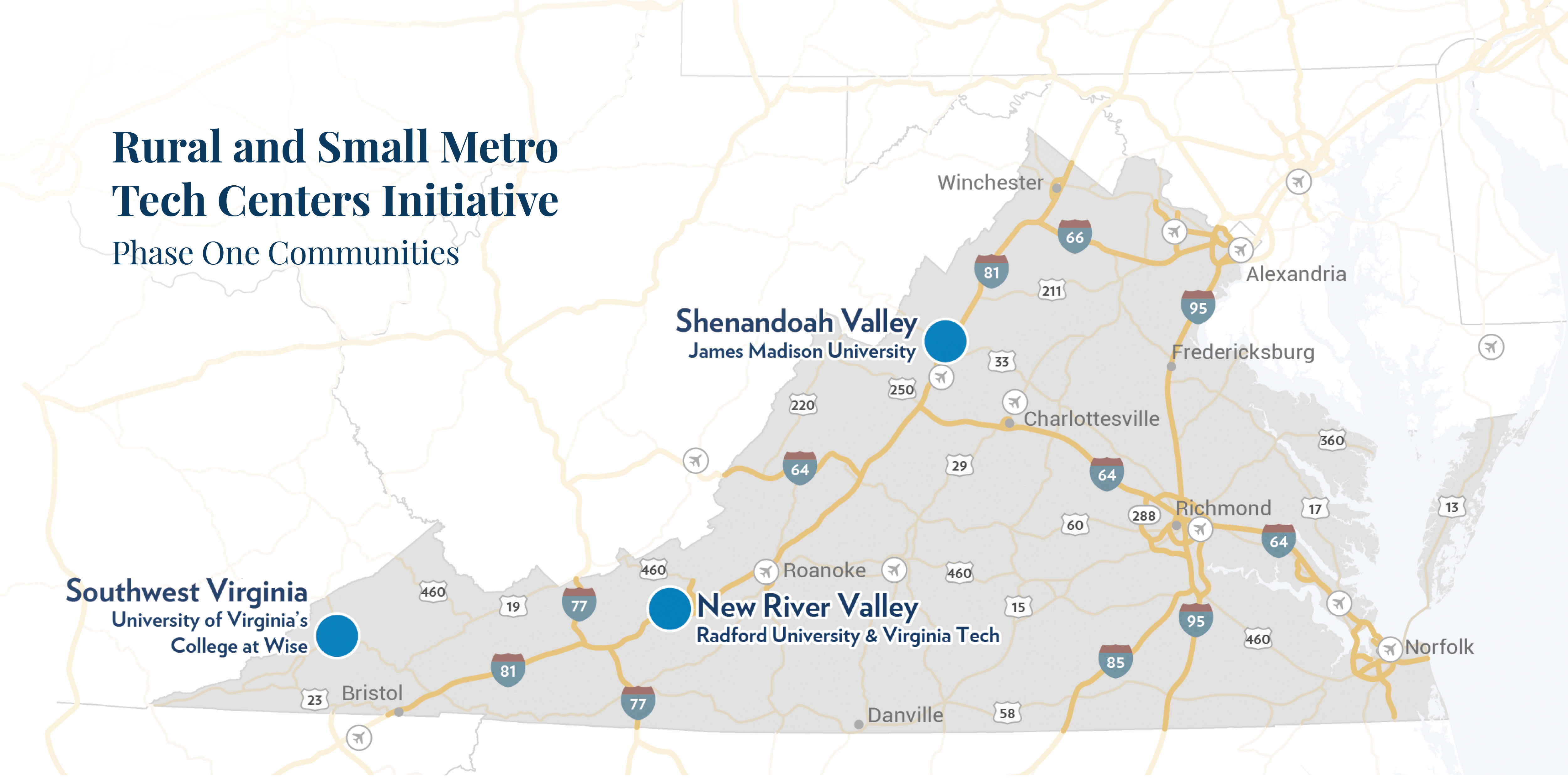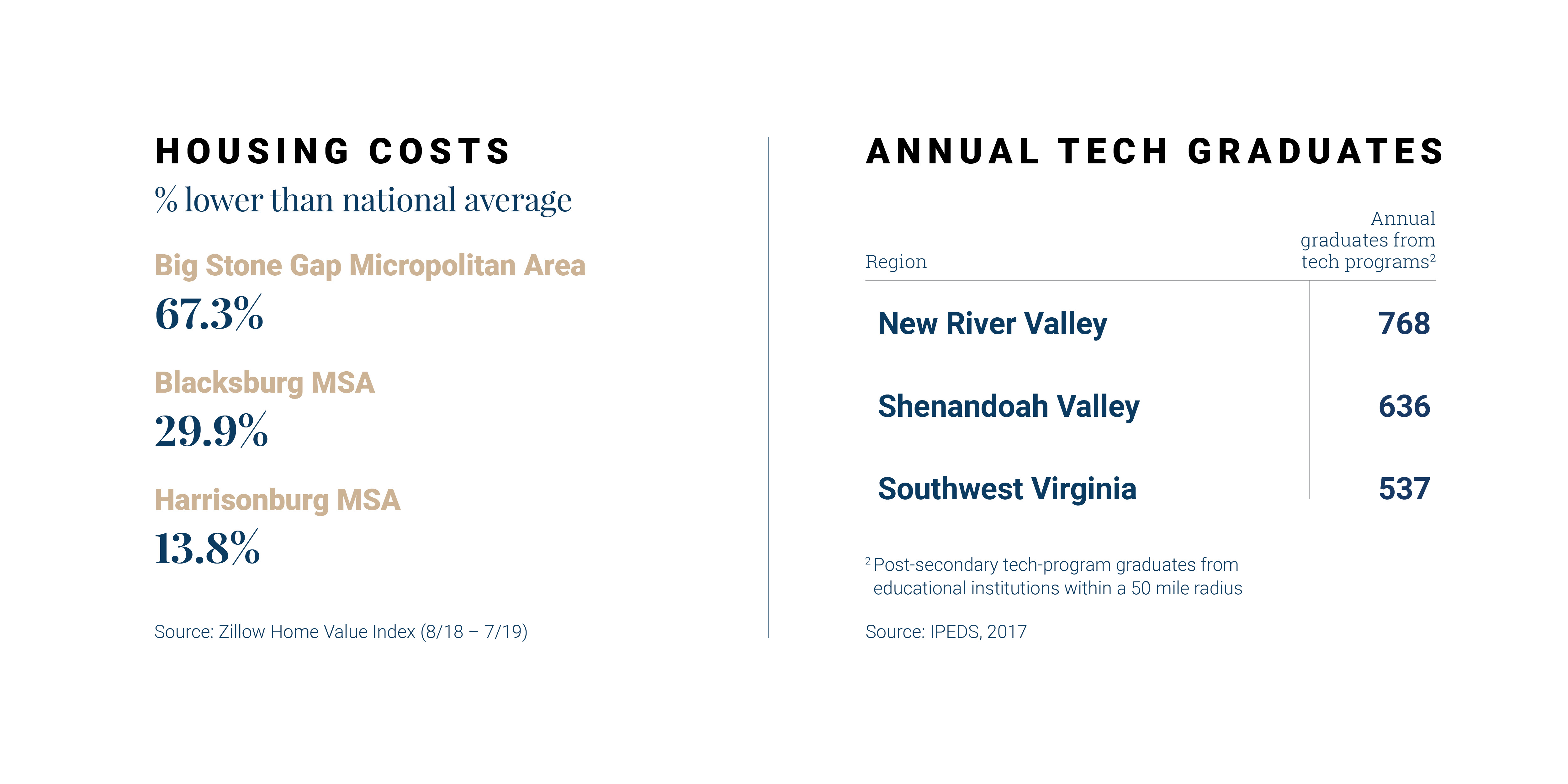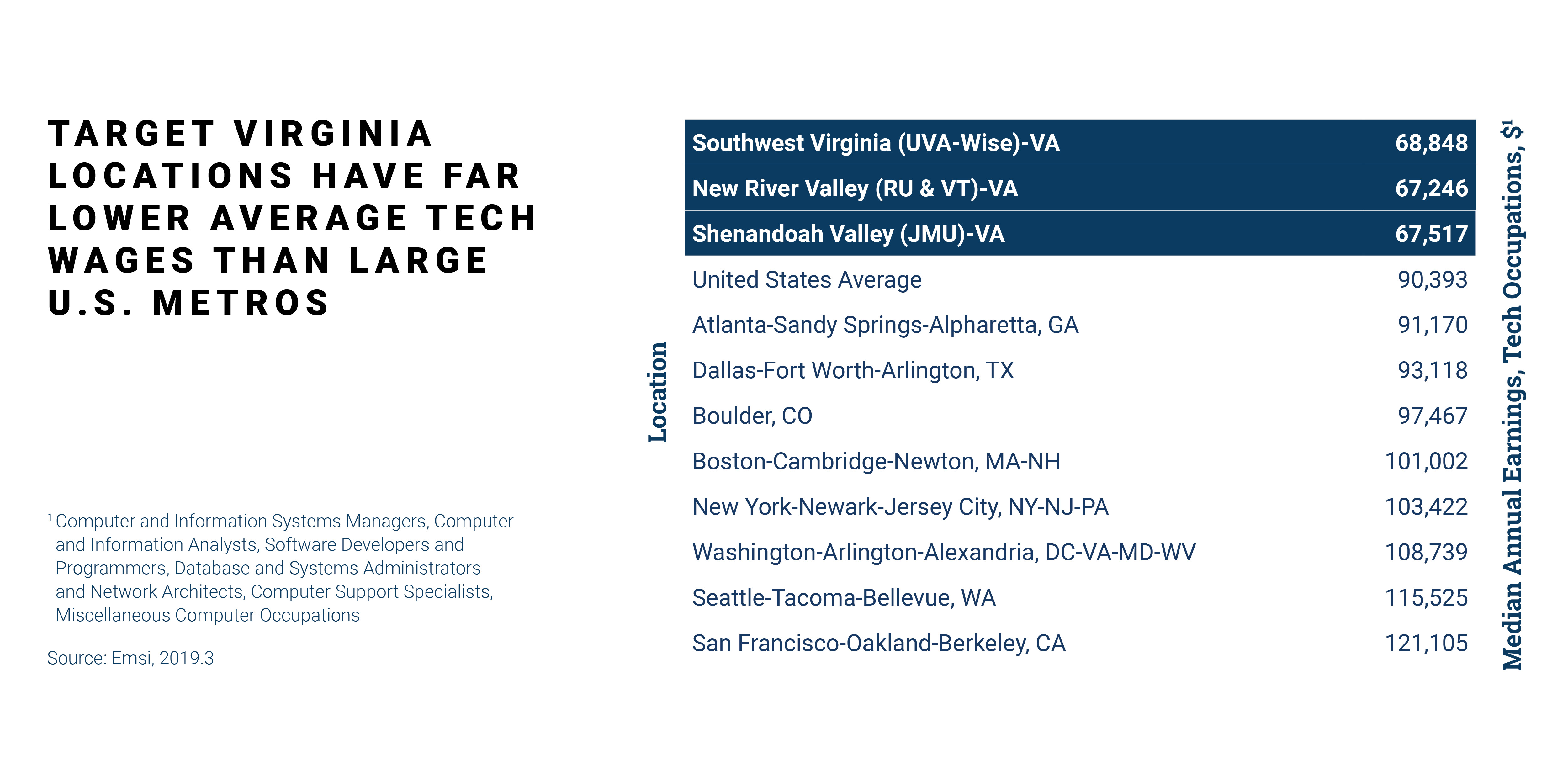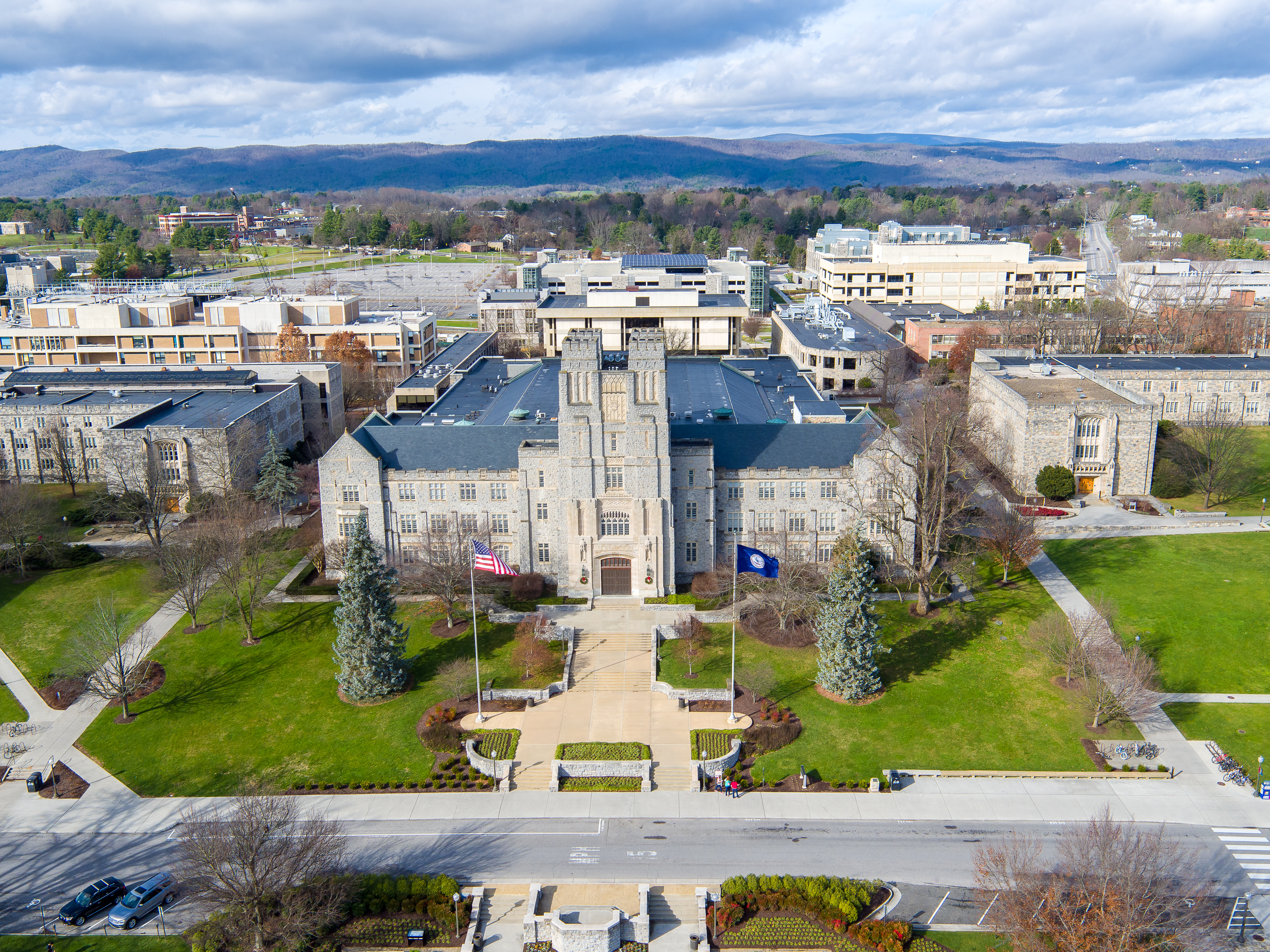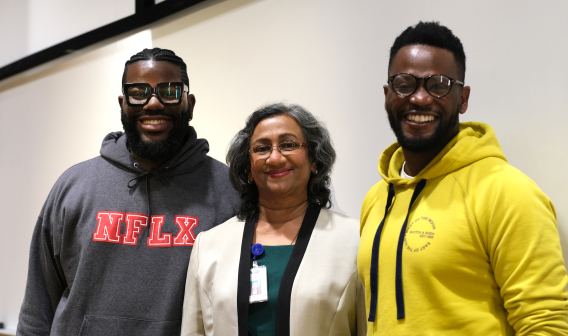A New Frontier for Tech Talent
Companies Find Tech Talent in the Mountains and Valleys of Virginia
Big cities have long been synonymous with economic opportunity. But what if that's not universally true? What if good opportunities also can be found in rural areas or smaller cities, where the cost of living and doing business is much lower?
MIT economist David Autor caused a stir by daring to ask these questions at a recent meeting of the American Economic Association. But his supposition was no surprise to the many tech companies that call Virginia’s rural areas home.
“We just believe that there are pockets in rural America that allow for scalability and sustainability, and don’t have some of the detractors that urban environments have,” says Brendan Walsh, senior vice president of partner relations for IT consulting firm 1901 Group. In large cities, he says, there’s a lot more job-hopping and competition for tech talent. In the college town of Blacksburg, 1901 Group is able to easily recruit and retain top employees.
To encourage other technology firms to make the move, VEDP launched the Rural and Small Metro Tech Centers Initiative in 2019. This program aims to bring 8,600 tech-related jobs to the Commonwealth’s rural areas and small metros by 2029 by highlighting and facilitating attractive environments that will support attraction of tech companies.
Rather than look overseas for this talent, more companies and leading site consultants that advise them are discovering they can save money and increase efficiencies by onshoring. “It is not so wild a dream that we can create digital literacy and tech talent hot spots in rural communities that will generate higher-paying jobs and attract businesses seeking lower costs,” notes Dean Barber, principal of Barber Business Advisors.
Computer science graduates continue to stream out of the Commonwealth’s well-regarded colleges and universities. Virginia has the second-highest concentration of tech workers and the sixth-largest net tech employment in the country, according to Cyberstates 2019, and data from Cyberseek shows that the Commonwealth has the largest cybersecurity workforce on the East Coast. VEDP’s initiative aims to enable tech companies to capture and retain this talent in areas where costs are lower than more densely populated urban locations.
The initiative aligns with a larger push at the state level to scale up tech talent across Virginia. Another initiative, the Tech Talent Investment Program, focuses on increasing that talent base. Virginia has committed $1 billion to more than double the annual number of graduates in computer science with bachelor’s and master’s degrees in computer science and related fields. The initiative will ultimately result in 25,000 to 35,000 additional graduates over the next two decades in excess of current levels.
As part of the Rural and Small Metro Tech Centers Initiative, VEDP staff use a data-driven process to match companies and communities, with the first phase focused on onshore delivery centers. First, they weigh various criteria to identify the sectors that make sense for Virginia’s rural and small metropolitan areas. Then they identify companies within those sectors that might consider an investment in Virginia, as well as community-specific criteria that could entice them to make a move. At that point, they identify Virginia communities that fit those criteria before developing company-specific proposals that include specific incentives to offset employers’ real estate, operational, and recruitment costs.
The initiative will be rolled out in phases. Future phases, which will start in late 2019, will focus on different subsectors or project archetypes in the tech space (e.g., IT government contracting offices and software product companies).
The initial target areas — Southwest Virginia, the New River Valley, and the Shenandoah Valley — have three key traits in common. One, they all offer access to a highly educated workforce, with local public, four-year higher education institutions producing computer science graduates. Two, they share a low cost of doing business, with median salaries for tech occupations approximately 25% below the U.S. average, according to Emsi. And three, their low cost of living, cultural assets, and natural beauty make them attractive places to live.
Southwest Virginia: Reliably connected
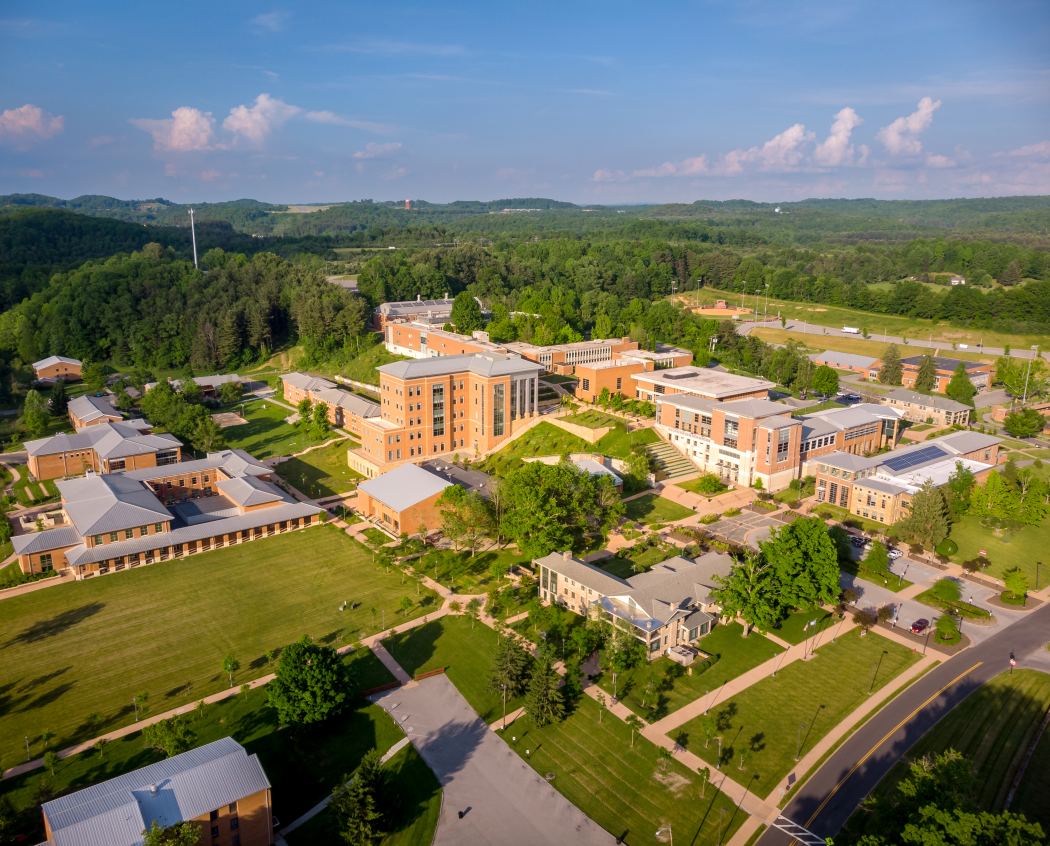
University of Virginia's College at Wise
Years ago, Southwest Virginia was known mainly for its coalfields. Today, it has an extensive fiber optic broadband network that offers reliable connectivity with built-in redundancies. The University of Virginia’s College at Wise offers the state’s only bachelor’s degree in software engineering. Mountain Empire and Southwest Virginia community colleges train students in cybersecurity, mobile app, and software development.
This combination of connectivity and access to talent has drawn major IT companies to Virginia’s southwest. One often-overlooked asset for the area is its protected location in the Appalachian Mountains, which makes natural disasters like hurricanes and earthquakes — and the attendant downtime and loss of productivity — much less of a concern. Examples include SAIC, a technology integrator working with defense, space, federal civilian, and intelligence agencies; Northrop Grumman, an aerospace and defense technology company; CGI, an IT consulting firm; and the Mineral Gap Data Center, a Tier III data center.
CGI opened its Information Technology Center of Excellence in the town of Lebanon as part of a nationwide onshoring strategy, says Kirk Lortz, director of consulting for CGI. The company selected Russell County for three reasons, he says: its proximity to commercial and public-sector clients; its access to a large, qualified talent pool from local universities, colleges, and technical institutes; and the strong business incentives and collaboration among government, industrial and economic development agencies, academia, and local businesses.
“A community like Lebanon also allows us to recruit employees to an area that — unlike many urban tech centers — offers a lower cost of living, affordable housing, an easy commute, and other important quality-of-life upsides,” Lortz says. “These and other factors help CGI attract and retain a skilled workforce to the community, including local residents who want to live and work in their hometown.” The center, a full-service software development and systems integration facility, employs more than 350 people.
New River Valley: A community of innovators
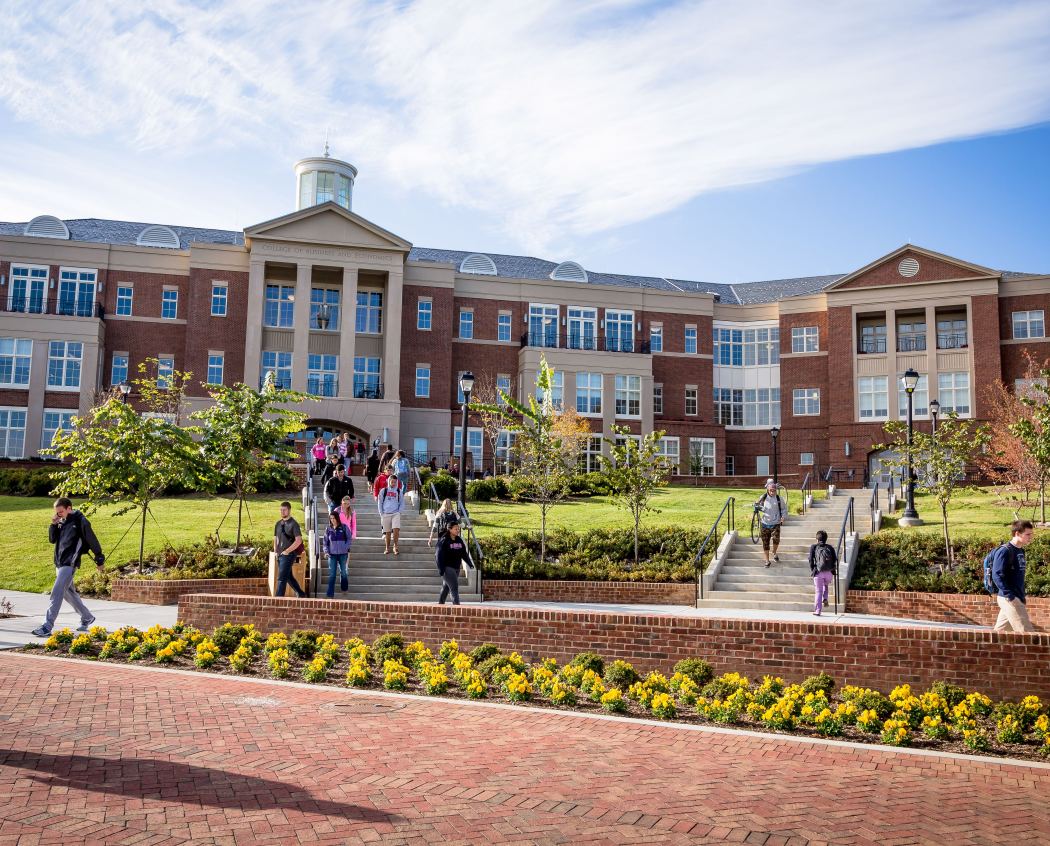
Radford University
1901 Group CEO and founder Sonu Singh had a vision. Some 13 years ago, Singh began thinking about what the second Industrial Revolution would look like in IT; in other words, how an assembly-line philosophy might apply to enterprise IT services. “The origin of our company, the essence of our firm, is about automation, is about streamlining, is about continual improvement,” Brendan Walsh, senior vice president of partner relations for 1901 Group explains.
To run a company where such continual improvement would be possible, Singh needed a place that would satisfy a three-part equation: “access to talent, high quality of life, and low cost of operations,” said Walsh. Singh found it in Blacksburg, home of his alma mater, Virginia Tech.
In addition to Virginia Tech, the New River Valley serves as home to Radford University and New River Community College. These institutions contribute a steady pipeline of talent for innovative area companies. The region offers magnificent mountains, eclectic small-town vibes, arts and culture, and a business-friendly, academically enriched environment. Rich in outdoor activities and breathtaking views, residents of the region enjoy a high quality of life at a reasonable cost.
A decade after its founding, 1901 Group provides IT infrastructure monitoring and management, application migration to the cloud, and cybersecurity services for major clients, including federal agencies. While headquartered in Northern Virginia, it employs 200 people in Blacksburg, with plans to hire up to 580 people there over the next four years. The company recently broke ground on a 45,000-square-foot Enterprise IT Operations Center.
It joins nearly 200 other tech- and research-related companies in the Virginia Tech Corporate Research Center, collectively employing more than 3,000 people. Another is Block.one, a Hong Kong-based provider of high-performance blockchain solutions. Blacksburg is one of Block.one’s key global locations and has provided the company with a rich source of talent in software development, product management, information technology, and other areas. The company has built a close relationship with Virginia Tech, donating $3 million to the Department of Computer Science to help students build blockchain skills. Block.one’s co-founder and CTO, Dan Larimer, is a regular guest lecturer who advises the university on the emerging blockchain-focused curricula. Larimer is a Virginia Tech alumnus, too.
“It isn’t a hard sell at all to get people who grew up or went to school in this area to come back,” says Alec Siegel, managing partner of Blacksburg recruiting firm Siegel Link. He ticks off the advantages: affordable houses, fantastic schools, outdoor recreation, the energy from Virginia Tech and Radford University, and access to developable sites in charming downtowns in communities like Radford and Pulaski.
It’s easy to keep great people, too, Walsh says. “If you develop and grow the talent, if you invest in your people and develop that skillset, you want them to stay with you and stay in that area. It’s common-sense management.”
Shenandoah Valley: A home, not a "stepping stone"
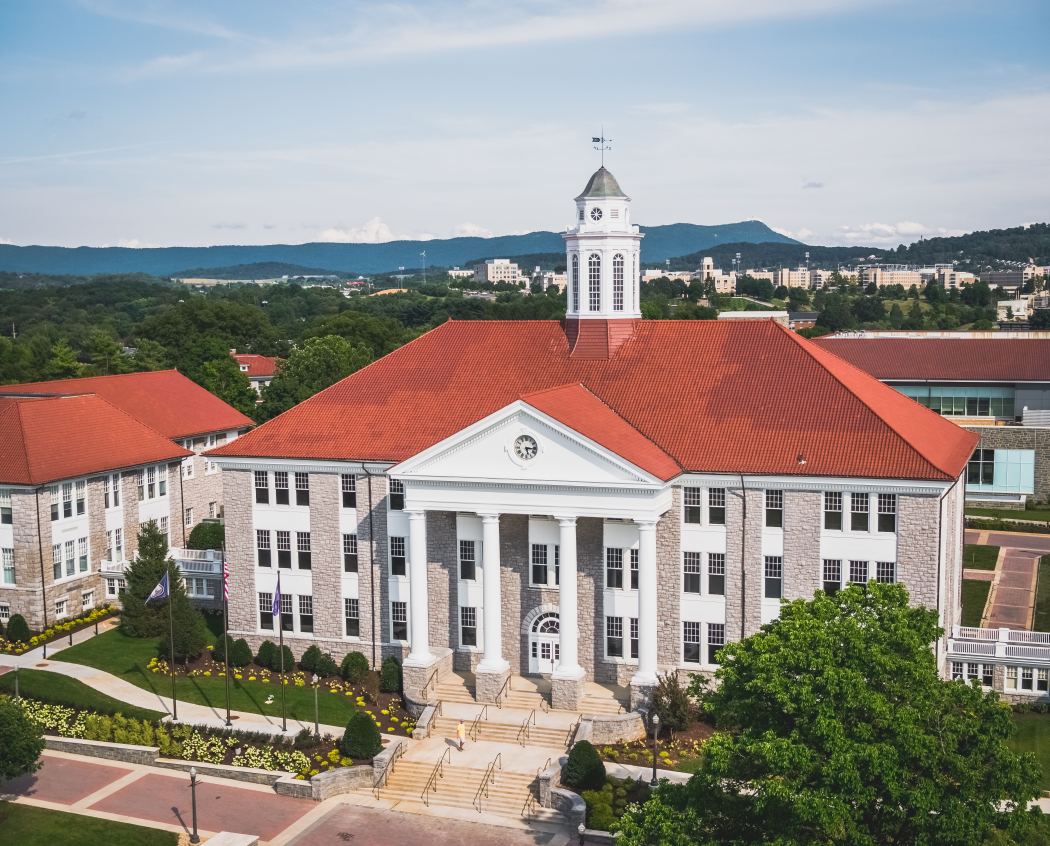
James Madison University
Chiedo John didn’t wait for a diploma. He founded his web app development company in 2012, when he was still an undergraduate at JMU. In the seven years since, he’s built Chiedo Labs to an innovative, thriving, web development company with a diverse array of clients. And he never thought about moving. “I love the quality of life and the people,” he says. “Harrisonburg is a beautiful place to live, with an amazing community.”
While some tech entrepreneurs might balk at setting up in a less established market, Chiedo embraced the opportunity and committed to get local graduates into the area workforce. His solution: an intense program for computer science students that identifies the best candidates and prepares them for entry-level roles.
Last year, Chiedo offered seven students paid internships. They had a strong computer science foundation, but not the specific skills and experience needed to do web application development. So, Chiedo gave each student three months to work through some real-life exercises and be mentored by a member of his team. “We ended up hiring four of them for junior developer positions when they finished the internship, and they’ve been contributing members of our team,” he says.
The resources offered by Shenandoah Valley colleges and universities are a major attraction for tech employers. James Madison University is Virginia’s fourth-largest issuer of undergraduate computer science degrees, graduating more than 200 CS students this year. A GO Virginia state grant allowed the cities of Harrisonburg and Waynesboro to partner with Blue Ridge Community College to develop a cybersecurity training program which is working to train dozens of cybersecurity analysts by July 2020. These tech education programs enable companies to tap into high-quality talent while reducing salary costs. One of the aims of the rural tech initiative is to provide more employment opportunities in the area to allow for talent to remain after graduation. That talent is abundant with eight colleges and universities in the region.
Harrisonburg and the Shenandoah Valley have another significant asset: location. The city sits within Rockingham County, home of the Innovation Village @ Rockingham, a planned community designed to combine research and office facilities with living space and outdoor amenities. The Valley is also a paradise for outdoors enthusiasts, with ski resorts (Massanutten and Bryce) and two vast recreation areas (Shenandoah National Park and the George Washington and Jefferson National Forests). Yet it’s just two hours from Greater Washington, D.C., an easy trip for companies doing business with companies located in that major tech cluster.
“My experience has been that more people see Harrisonburg as a home rather than a stepping stone,” Chiedo says — just as he does.
